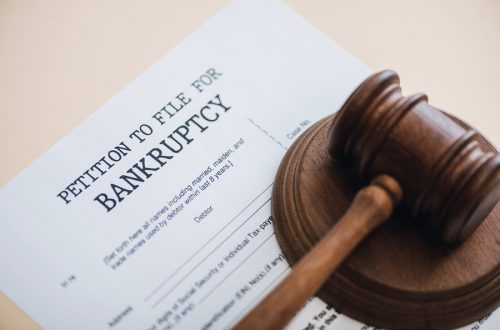For many people, divorce is the main reason they need to file for bankruptcy. While both predicaments can be challenging, proper planning can make the process less complicated and more cost effective. If you are not sure whether to file for bankruptcy or divorce first, there are several important factors to consider beforehand.
Bankruptcy and Divorce Costs
Bankruptcy filing fees remain the same, whether you file jointly or individually. By filing a joint bankruptcy with your spouse prior to a divorce you can save on court fees and legal costs. Filing for bankruptcy before your divorce can also simplify debt issues, property division and divorce costs. It will also allow for financial support considerations, as this can affect how your bankruptcy will proceed.
Debt Allocation
Deciding which debts should be assigned to each spouse can become complicated in a divorce. While a bankruptcy may discharge a debt it does not discharge spousal obligations. If one spouse must pay a particular debt per the divorce decree, it does not alter the other spouse’s obligations toward that creditor. It may be in both spouses’ best interest to file bankruptcy and discharge combined debts prior to a divorce. Filing for bankruptcy jointly will allow for all debts to be addressed in one case.
Property Division
Eliminating debts by filing for bankruptcy jointly will simplify the property division process in a divorce. If you own multiple properties, it may be a better idea to file a joint bankruptcy for more exemptions. However, bankruptcy proceedings will take precedence over divorce proceedings. Filing for bankruptcy during an ongoing divorce will enact the automatic stay, which will place a hold on the property division process until the bankruptcy is complete. A qualified and experienced bankruptcy attorney can discuss these options with you.
Chapter 7 Bankruptcy vs. Chapter 13 Bankruptcy
Chapter 7 bankruptcy is a liquidation bankruptcy designed to eliminate your unsecured debts- like credit card debt and medical bills. In a Chapter 7 bankruptcy, discharges typically take place after only a few months. This allows the bankruptcy to be completed quickly before a divorce.
It is important to note that you must qualify for Chapter 7 bankruptcy protection, based on your income. It may be necessary to wait until each spouse has a separate household after the divorce, before filing for Chapter 7 bankruptcy. On the other hand, Chapter 13 bankruptcy may last three to five years because a portion or all of the outstanding debts will need to be repaid through a structured repayment plan. Those filing Chapter 13 may want to do so individually, after the divorce because of how long the Chapter 13 bankruptcy process can take.
If you are in a financial crisis and are considering filing bankruptcy, contact an experienced Miami bankruptcy attorney who can advise you of all of your options. As an experienced CPA as well as a proven bankruptcy lawyer, Timothy Kingcade knows how to help clients take full advantage of the bankruptcy laws to protect their assets and get successful results. Since 1996 Kingcade & Garcia, P.A. has been helping people from all walks of life build a better tomorrow. Our attorneys’ help thousands of people every year take advantage of their rights under bankruptcy protection to restart, rebuild and recover. The day you hire our firm, we will contact your creditors to stop the harassment. You can also find useful consumer information on the Kingcade & Garcia website at www.miamibankruptcy.com.
Sources:
http://www.nolo.com/legal-encyclopedia/divorce-bankruptcy-which-comes-first.html
http://www.alllaw.com/articles/nolo/bankruptcy/bankruptcy-and-divorce-which-comes-first.html

